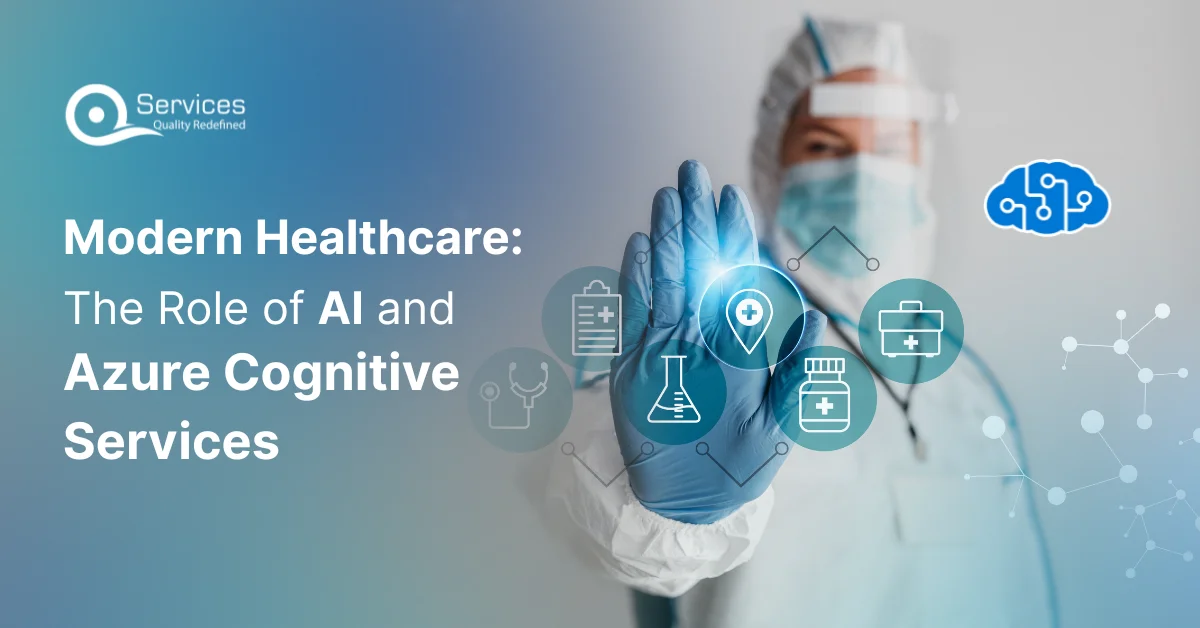
Rewards
.





CANADA
55 Village Center Place, Suite 307 Bldg 4287,
Mississauga ON L4Z 1V9, Canada
Certified Members:
.



Home » Transforming Warehouse Management: AI Solutions for Quality Assurance

Efficient warehouse management is crucial in modern business operations primarily due to its direct impact on quality control and customer satisfaction. Inaccuracies in inventory management can lead to stockouts or overstock situations, impacting timely order fulfillment and customer expectations. Poor quality control processes can result in defective products reaching customers, leading to increased returns and diminished brand reputation.
Effective warehouse management ensures precise inventory tracking, streamlined operations, and rigorous quality assurance protocols, thereby optimizing supply chain efficiency and maintaining high product standards essential for customer loyalty and business success. Strategic AI implementation in supply chain management, specifically quality control by AI in warehouse management, has enabled early adopters to cut down logistics costs by 15% and increase inventory levels by 35%. Here, we will explore how Artificial Intelligence transforms warehouse management for quality assurance.
Artificial Intelligence (AI) utilizes computer systems to perform tasks that traditionally require human intelligence. In warehousing, AI incorporates technologies such as machine learning, natural language processing, and computer vision to enhance operational efficiency and intelligence.
By anticipating demand and effectively controlling stock rotation, AI maximizes inventory levels. This reduces the possibility of stockouts or overstocking, improving inventory control and resulting in cost savings.
AI enhances the precision and velocity of order selection, packaging, and delivery procedures. This guarantees on-time delivery and raises client satisfaction.
AI-driven systems detect defects and ensure product integrity. These advanced algorithms can identify issues that might be missed by human inspectors, significantly improving product quality.
AI algorithms determine the most efficient routes for goods movement within the warehouse, reducing travel time and increasing order fulfillment efficiency.
AI reduces maintenance expenses and downtime by anticipating equipment malfunctions before they occur. We call this preventive maintenance. Preventive actions keep equipment in excellent operating condition and boost overall warehouse productivity.
Get free Consultation and let us know your project idea to turn into an amazing digital product.
Automation of Routine operations: Artificial intelligence (AI) can handle time-consuming and repetitive operations, minimizing the need for human labor and producing results that are more consistent and error-free.
Instant Data Analysis: Real-time data processing via artificial intelligence (AI) yields instantaneous insights that speed up and improve warehouse operations by enabling more informed and timely decision-making.
Lower Labor Costs: Automating various warehouse tasks with AI reduces the need for human intervention, thus cutting labor expenses.
Enhanced Productivity: AI-driven automation boosts the speed and efficiency of warehouse processes, leading to higher overall productivity.
Optimal Inventory Management: AI helps maintain ideal inventory levels, preventing overstock (excess inventory tying up capital) and stockouts (missed sales opportunities), resulting in cost savings and improved resource allocation.
Valuable Insights: AI analyzes data patterns and trends to provide actionable insights, empowering managers to make better-informed decisions.
Process Optimization: These insights enable managers to fine-tune various warehouse operations, ensuring they run as efficiently and effectively as possible.
Continuous Improvement: The data-driven nature of AI ensures ongoing assessment and enhancement of warehouse processes, keeping them aligned with the company’s objectives and fostering continuous operational improvement.
AI-powered visual inspection systems utilize advanced cameras, sensors, and machine learning algorithms to automatically scan products for any defects. Machine learning in warehouse management enhances this process, making it highly efficient and accurate, capable of identifying anomalies such as scratches, dents, incorrect labeling, and other imperfections that might be missed by human inspectors.
Third parties include partners generally considered material. Firstly, it significantly improves accuracy as the AI systems are less prone to human error and fatigue. The precision of has indicated that the smallest defects are detected, maintaining a high standard of quality. Secondly, this technology reduces the need for manual labor. Human inspectors can be redeployed to more strategic roles within the warehouse, allowing for better utilization of human resources. Lastly, the speed of inspections is greatly enhanced. Automated systems can scan products much faster than human inspectors, increasing throughput and ensuring that quality checks do not become a bottleneck in warehouse operations.
AI is essential for the ongoing monitoring of product quality during manufacture or storage, even beyond the initial inspections. With the use of real-time data, sophisticated AI systems can continuously assess the quality of a product and spot any deviations from predetermined norms. The system instantly notifies warehouse workers in the event that any anomalies are found, enabling them to take fast corrective action.
This real-time monitoring has a number of noteworthy advantages. Early quality issue detection minimizes waste and lowers the possibility that customers may receive faulty items by addressing concerns before they worsen. Furthermore, it guarantees adherence to industry norms and guidelines, as any discrepancies are promptly detected and fixed.
AI’s role in quality control extends to the maintenance of warehouse equipment. Predictive maintenance, driven by AI algorithms, analyzes data from various equipment, such as conveyor belts and forklifts, to predict when maintenance will be needed. By identifying patterns that indicate potential failures, AI enables timely maintenance interventions.
The advantages of predictive maintenance are substantial. It reduces downtime by addressing issues before they lead to equipment failures, ensuring that warehouse operations run smoothly. Optimized maintenance schedules mean that maintenance is performed only when necessary, reducing unnecessary downtime and maintenance costs. Overall, predictive maintenance enhances the reliability and efficiency of warehouse operations, contributing to better product quality and operational stability.
AI also revolutionizes the logistics within the warehouse through smart routing and picking optimization. By analyzing factors such as item locations, order priorities, and traffic patterns, AI optimizes the routes for order picking, minimizing travel time for warehouse staff.
The benefits of smart routing and picking optimization are significant. It increases the efficiency of warehouse operations by reducing the time and effort required to pick orders. This leads to faster order processing and improved productivity. Reduced travel time within the warehouse also lowers labor costs, as staff can complete their tasks more quickly and efficiently. The overall result is a more streamlined and cost-effective order fulfillment process, contributing to enhanced operational efficiency and customer satisfaction.
The way that firms handle their stock is being revolutionized by AI-driven inventory management. Businesses may manage inventory levels, reduce waste, and accurately forecast demand by utilizing machine learning algorithms and predictive analytics.
Forecasting Demand and Optimizing Stocks
Demand forecasting uses advanced AI algorithms and past sales data to project future product demand. This helps companies keep their inventory levels at ideal levels, which lowers expenses related to both overstocking and understocking.
Real-Time Inventory Tracking
Real-time inventory tracking systems utilize AI to continuously monitor stock levels. This provides businesses with real-time data about their inventory, facilitating informed decision-making regarding restocking and sales strategies.
Numerous companies have successfully integrated AI-driven inventory management systems. For instance, Amazon employs AI to manage its extensive inventory and optimize its supply chain, resulting in reduced costs and enhanced customer satisfaction.
AI is revolutionizing order fulfillment processes, making them more efficient and customer focused.
AI in Order Picking and Packing
AI-powered robots are being utilized in warehouses to handle order picking and packing. These robots can operate continuously, boosting productivity and minimizing errors.
Automated Sorting Systems
AI-driven automated sorting systems classify packages based on size, weight, and destination. This accelerates the order fulfillment process and reduces the likelihood of errors.
Impact on Delivery Times and Customer Satisfaction
By optimizing order fulfillment processes, AI significantly reduces delivery times. This results in higher customer satisfaction, as orders are delivered swiftly and accurately.

AI is also enhancing safety and security in warehouses.
AI-powered surveillance systems can monitor warehouses 24/7, detecting any unusual activity. They can identify potential security threats and alert human operators, helping to prevent theft and vandalism.
AI can also improve worker safety. For instance, AI-powered robots can perform hazardous tasks, reducing the risk of accidents. Additionally, AI can monitor workers to ensure compliance with safety protocols.
AI helps prevent theft and loss in warehouses. By monitoring inventory in real-time, AI can detect discrepancies that might indicate theft. Additionally, AI can predict which items are most likely to be stolen, allowing businesses to implement preventative measures.
Artificial Intelligence (AI) is transforming warehouse management by improving efficiency, accuracy, and safety. AI solutions in areas like inventory management, order fulfillment, quality assurance, and security help businesses save costs, boost productivity, and enhance customer satisfaction. AI for warehouse management is continually evolving, and as AI technology progresses, its impact on warehouse operations will continue to grow, leading to further improvements. This ensures that warehouses remain flexible, strong, and competitive in an ever-changing market. These advancements enable businesses to better meet customer demands, streamline operations, and maintain a competitive edge in the industry.
To gain deeper insights into the advantages that automation can bring to your logistics and supply chain processes, explore “Benefits of Automation in Freight Management Systems.” This article explores how integrating automation in freight management enhances operational efficiency, lowers costs, and optimizes the transportation of goods.

Our Articles are a precise collection of research and work done throughout our projects as well as our expert Foresight for the upcoming Changes in the IT Industry. We are a premier software and mobile application development firm, catering specifically to small and medium-sized businesses (SMBs). As a Microsoft Certified company, we offer a suite of services encompassing Software and Mobile Application Development, Microsoft Azure, Dynamics 365 CRM, and Microsoft PowerAutomate. Our team, comprising 90 skilled professionals, is dedicated to driving digital and app innovation, ensuring our clients receive top-tier, tailor-made solutions that align with their unique business needs.

The combination of Microsoft AI, Azure Health Insights, and Azure Cognitive Services is transforming healthcare by allowing smarter and efficient decision-making based on data. These technologies can fundamentally change the conventional practices of healthcare by taking new approaches to enhance

Healthcare is undergoing a massive shift thanks to new technologies. Think cloud computing, artificial intelligence (AI), and the tools developers use to build websites and apps. Hospitals and doctors’ offices are all trying to get better at caring for patients, running more smoothly, and keeping data safe. That’s why using Microsoft tech and Angular together has become a popular way to build modern, easy-to-use digital healthcare solutions.

Reports show that up to 30% of cloud spending goes to waste because of unused resources, over-provisioning, and poor planning. For businesses heavily relying on Azure, finding ways to cut costs without sacrificing performance.
AI is transforming warehouse management by improving inventory accuracy, optimizing order picking, and enhancing quality control. Machine learning algorithms forecast demand, optimize stock levels, and reduce overstock or stockouts. AI-driven automation minimizes errors and boosts efficiency, aided by drones and robots for tasks like inventory and order fulfillment.
AI transforms supply chain management by automating tasks, optimizing processes, and improving decision-making. AI systems streamline tasks, analyze data for insights, predict trends, and recommend strategies. Leveraging machine learning and optimization, AI enhances control and efficiency, optimizing inventory levels and reducing costs, leading to faster, more accurate operations.
AI is revolutionizing logistics by optimizing operations, enhancing efficiency, and reducing costs. It improves planning through real-time data analysis, market trend forecasting, and automating tasks like data entry, scheduling, and routing. From predictive analytics to autonomous vehicles, AI is transforming the global goods movement.
AI improves inventory management by enhancing demand forecasting, optimizing inventory levels, and increasing supply chain visibility. It accurately analyzes consumer demand, adapts to trends and seasonal shifts, and adjusts inventory based on real-time data, ensuring efficient stock management.
Increased efficiency and accuracy: AI automates tasks, minimizes errors, and boosts operational efficiency.
Real-time data insights: AI generates actionable insights for better decision-making and responsiveness
AI sensors integrated into warehouse infrastructure monitor product conditions in real time. They detect abnormalities and trigger alerts for proactive maintenance. Predictive analytics help anticipate maintenance requirements, reduce downtime, and uphold quality standards
.





55 Village Center Place, Suite 307 Bldg 4287,
Mississauga ON L4Z 1V9, Canada
.




Founder and CEO

Chief Sales Officer

🎉 Thank you for your feedback! We appreciate it. 🙌